Everett Community College eases hurdles in medical assistant program
Reposted from The Herald
Date: Aug. 13, 2024
Students can now earn their national accreditation and be on their way to a hospital job in as short as 15 months.
By Sydney Jackson
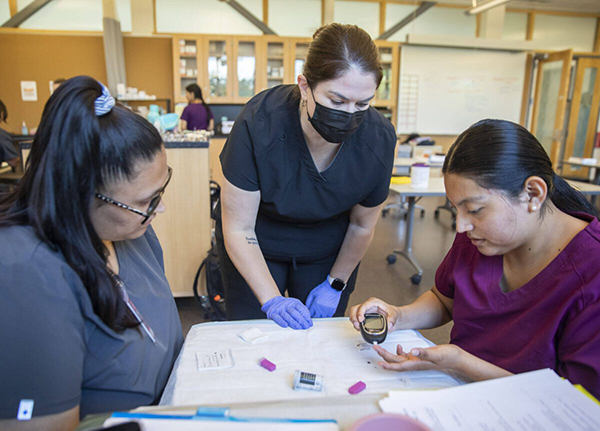
Abril Gonzalez, left, and instructor Amber Samaniego, center, watch as Aleyda Chuc tests her glucose levels on Wednesday, Aug. 7, 2024 in Everett, Washington. (Olivia Vanni / The Herald)
EVERETT — For Marysville mom Lexi Molineux, the medical assistant program at Everett Community College has been a breeze.
That’s because medical assistant students at the college can now finish their program faster, and with more flexible schedules. Students can earn their medical assistant certificate in 15 to 18 months, cutting six to nine months of class time. Students can also take all three-quarters of their courses online, aside from five hybrid lab classes.
The remaining five lab classes require four hours of in-person training per week.
The goal is to get medical assistants trained faster for high-demand jobs in Snohomish County, said Rhonda Hamburg, who directs the program and led its redesign. In the field, medical assistants support nurses and clinicians by talking with patients about their medical history, taking vitals and providing some injections and medications.
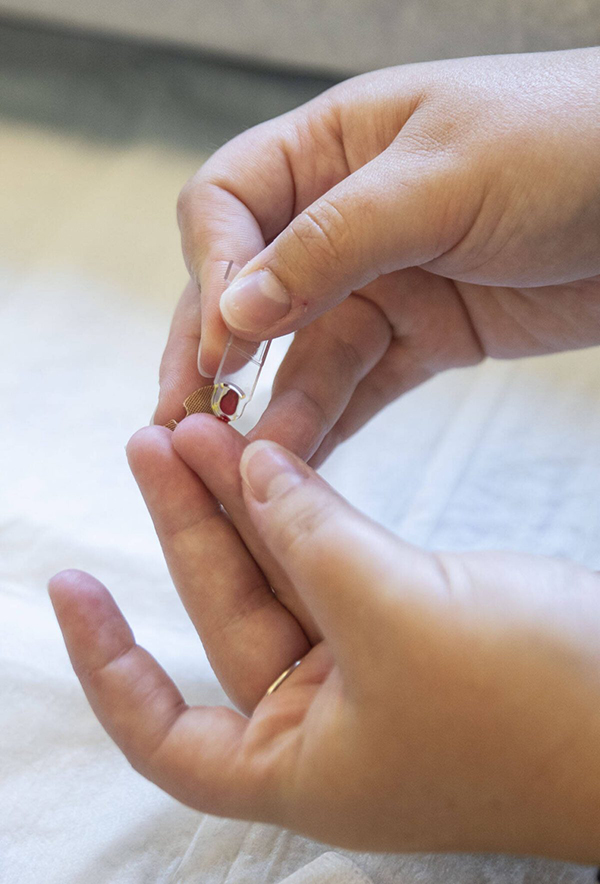
A student uses a test for hemoglobin during class on Wednesday, Aug. 7, 2024 in Everett, Washington. (Olivia Vanni / The Herald)
Last summer, the college reduced the program’s certificate requirements by 15 credits.
“It makes it so I can work and don’t have to struggle for money,” Molineux said.
Molineux, 25, joined the program last summer as a first step toward becoming a lactation consultant. She’s a full-time mom of a toddler, and also works part time at an Addicted Espresso coffee stand in Everett.
The program adjustment comes as hospitals like Providence Regional Medical Center Everett, a close partner with the college, and other health care facilities statewide struggle to hire and retain workers. More than four years after the COVID-19 pandemic began, many health care employers have still yet to overcome financial strain, and workers are retiring, switching careers or battling burnout. And when employees have protested their working conditions or pay, health care systems in the state have pointed to a worker shortage and poor insurance reimbursement rates.
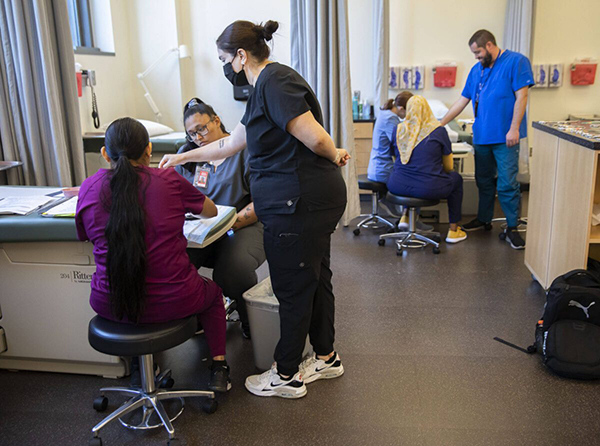
Students learn how to do hemoglobin, hematocrit and glucose tests on Wednesday, Aug. 7, 2024 in Everett, Washington. (Olivia Vanni / The Herald)
In response, the college has expanded and expedited its health care programs. Last fall, the nursing program grew its two-year evening cohort from 24 to 39 spots, thanks to at least $138,000 from the state. Now, for medical assistant students, the college condensed some courses and eliminated prerequisites that weren’t mandated by the state or Commission on Accreditation of Allied Health Education Programs.
Hamburg said the recent changes have helped boost enrollment, as many students who would otherwise stay away because of time or money conflicts can now sign up. For the 2024-2025 school year, about 200 students were enrolled in various health science courses, Hamburg confirmed.
Once students complete the program, they can take one of five exams to become nationally certified. Some apprenticeships can replace the exams, thanks to recent amendments to state law, but the college recommends national accreditation for higher wages and signing bonuses, as well as the ability to work outside Washington. Students can also get their associate degree in technical arts or a transfer degree for another 17 to 25 credits.
Local job postings show medical assistants earn about $40,000 to $63,000 per year, depending on location and experience.
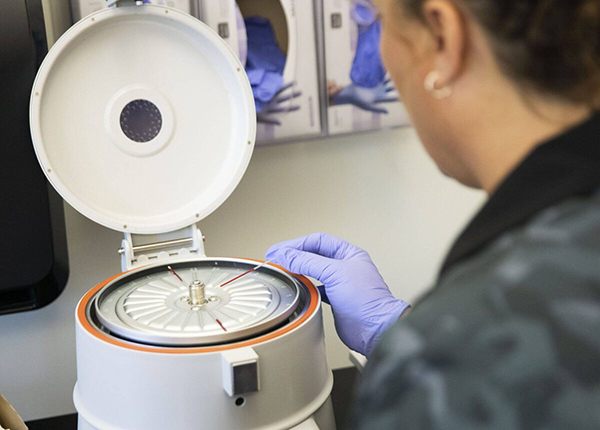
Hematocrit test is placed in a centrifuge on Wednesday, Aug. 7, 2024 in Everett, Washington. (Olivia Vanni / The Herald)
On Wednesday, Molineux and other students met in person to practice finger prick blood tests. Molineux is already planning her next move — a job at Providence Everett, where she can continue her education and earn a nursing degree. Molineux hopes to eventually work at Pacific Wellness & Lactation, the clinic where she got help when her daughter had trouble breastfeeding.
The medical assistant program has no enrollment cap, and is open to anyone with a high school diploma or equivalency. Students can start in fall, winter, spring or summer quarter. Fall classes begin Sept. 23.
You can sign up for a free, virtual health sciences information session on the EvCC website.
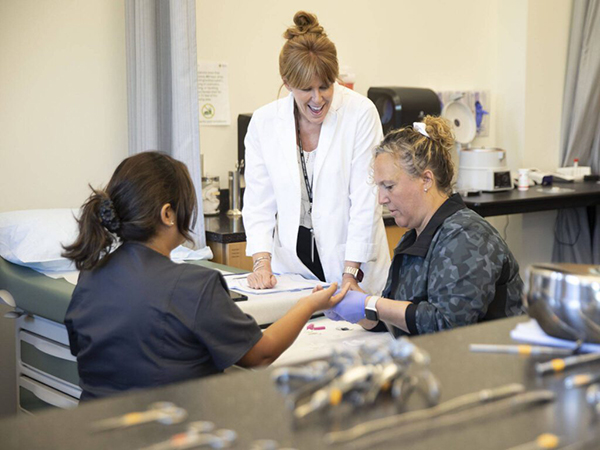
Rhonda Hamburg encourages students while they collect blood for a hematocrit test on Wednesday, Aug. 7, 2024 in Everett, Washington. (Olivia Vanni / The Herald)
Article reposted from Heraldnet.com. Sydney Jackson: 425-339-3430; sydney.jackson@heraldnet.com; Twitter: @_sydneyajackson.

